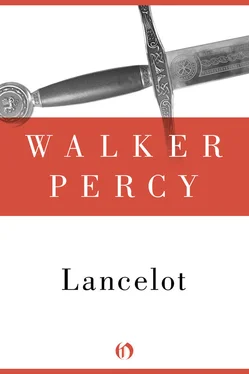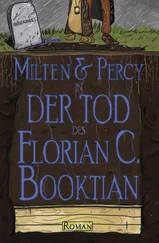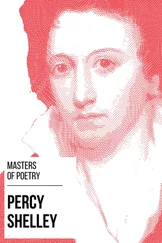I stood looking down at her. She stirred.
“What’s your name?” I asked her.
“Anna,” she said. That was all she said.
I decided to sit beside her. She stirred again, tucking her chin in her throat so she could see me past her cheekbone. I could see the gleam between her eyelids.
Her thin brown face reminded me of Lucy, except she didn’t have Lucy’s funny quirky expression and the tiny scar on her lip. Her face was blank, lips slightly parted and dry, like a woman asleep. She had a scar all right, not like Lucy’s, but a big white raised scar curving from forehead to cheek where she had been cut in the rape and beating. Her scar was like a whore’s. Do you remember our both making the observation that all whores have scars, belly scars from hysterectomies and abortions, face scars from beatings, leg scars from car wrecks?
“Here,” I told her. “Eat this.” In my pocket I had half a dozen Hershey kisses Malcolm (the guard — or is he a nurse?) had given me. I unwrapped the silver foil of one and offered it to her. She made no response. I put it into her mouth.
Do you know what she did?
She raised one hand from between her thighs, took the candy out, tucked her chin again, frowned, and looked at it exactly the way a child would, then closed her eyes, put it back in her mouth, and began sucking it.
Yes. Jacoby. He was there, I think, the night of the day I talked to Elgin. At any rate, there was one night I remember.
Janos Jacoby was full of himself. Youngish, short, black forelock which he kept whipping off his eyes with a toss of his head. He was either volatile fiery French-Polish or he knew how to act volatile fiery French-Polish or maybe both. Maybe he was from the Bronx. His accent varied — he had been an actor too and so didn’t know what he was. Sitting next to Margot, he gave all his attention to her, turning so far around in his chair that, his back to me, he was almost facing her. He had also gotten onto the foreigner’s knack of using his accent and even his mistakes to his advantage. Searching for a word, lips tensed European style, he would hold both hands under Margot’s face as if the word were there for both to examine. Though he ignored Raine and Dana — I wondered if all directors ignored all actors — he used his head, face, hands, lips like an actor, for an effect. An effect on Margot. She was charmed. Her eyes sparkled. Color rose in her cheeks. Her freckles darkened. His eyes swept past me, through me, as if I weren’t there. When she spoke, her shoulder swayed jokingly toward him. touching him.
Merlin, on the other side of Margot, seemed inattentive and bored. Using his spoon handle, he made long straight marks in the tablecloth. Once in a while Margot would sway the other way and touch him as if to draw him into the conversation, but he only nodded.
Earlier Merlin and Jacoby had been in an argument, Merlin talking about the indispensability of action and story in a film. Jacoby talking in a much fancier way about “cinematographic language,” “the semiotics of film,” “Griffith as master of denotative language.” “Metz as the only critic who understands the connotative film,” and so forth. What junk. I refused to pay attention.
Merlin finally shrugged and fell silent. I couldn’t tell whether Jacoby was trying to (1) upstage Merlin, (2) impress Margot, (3) do both, or (4) was speaking honestly.
Nor could I be sure whether Merlin was withdrawn because (1) Jacoby was paying too much attention to Margot, (2) he was bored by Jacoby’s fancy “cinematographic semiotics.”
Raine and Dana listened glumly. My daughter Lucy had managed to get herself between them and was in a transport of happiness, happy to be next to Troy Dana, whom she said she was in love with, but maybe even happier to be next to Raine, whom she worshipped as the casual possessor of those qualities most prized by Lucy and therefore, it seemed to her, most unattainable: beauty, fame, and that special “niceness” which Lucy could scarcely believe, Raine’s way of remembering the film crews’ names, the film crews’ wives’ names, servants’ names, and even the servants’ children’s names, taking time with her, Lucy’s friends. Raine’s ability to “act like anybody else, a real person” seemed to Lucy to surpass the most miraculous deeds of the saints. “She is the most wonderful person I have ever known,” Lucy told me.
I didn’t think Raine was wonderful. She was amazingly pretty, with a pure heart-shaped face and violet-cobalt eyes which seemed to look from her depths into yours, a trick I came to learn, that steady violet gaze, chin resting on the back of her bent hand. Her depths were vacant. But she flirted with me and that was pleasant. Her single enthusiasm, beside her niceness, was her absorption with a California cult called I.P.D., or something like that — Ideo-Personal-Dynamics maybe. She told me of it at length. I remember very little except that she said it was more scientific than astrology, being based not merely on the influence of the stars but on evidence of magnetic fields surrounding people. The existence of these fields or auras had been proved, she said, by special photography.
Cobalt eyes gazing straight into mine one foot away: “Did you know your magnetic field is as unique as your fingerprints?”
“No.”
“It is more exact than astrology because though we are both Capricorns, we are different.”
“Yes?”
“Many people are skeptical of astrology but there is scientific proof of this.”
“I understand.”
“Don’t you see the possibilities?”
“Possibilities?”
“For the future, for mankind, for preventing wars.”
“How’s that?”
“Everyone could have his ideogram, which is a scientific reading of his magnetic field. Some ideograms are clearly stronger than others or incompatible with others. If the President of the United States has a weak ideogram, it would be stupid to send him to a summit meeting. It’s the ultimate weapon against Communism.”
“I can see how it would be.”
The actors, I noticed, took a light passing interest in everything, current events, Scientology, politics. They were hardly here at all, in Louisiana that is, but were blown about this way and that, like puffballs, in and out of their roles, “into” Christian Science, back out again.
“I find it a tremendous help in both my personal and professional life. Wouldn’t you like to have a reading? You know. I think you underrate yourself.” She said it all in a single breath.
“Well, no, that is, yes, sure. Will you give me a reading?”
“Will I ever give you a reading!”
The trouble was that even when she was on this, her favorite subject, her voice went flat and trailed off. Her eyes were steady but unfocused. I had the feeling she wasn’t listening to herself. Could it be that her I.P.D. was a trick too, not a trick she played on me but on herself, a way of filling up time?
Merlin and Jacoby argued about the movies they were making, or rather Jacoby seemed to be making, because although Merlin was the producer-director and Jacoby co-director, it was Jacoby who ran the set, yelling at actors and grips, even ordering local residents out of their own houses. It amazed me how meekly, even joyfully, the locals received these bad manners. Anything to be in a movie, or somehow connected with a movie. Then I thought: Listen who’s talking and who’s been kicked out of his own house.
They were arguing about the scene where the poor white sharecropper rapes the aristocratic girl in the loft of the pigeonnier.
“Of course you must realize”—said Jacoby, leaning over Margot, drawling and moving his lips muscularly—“that at this point something very important happens, Bob. Because what starts out to be a rape, an act of violence which comes from his own — how do you say, being caught—”
Читать дальше












